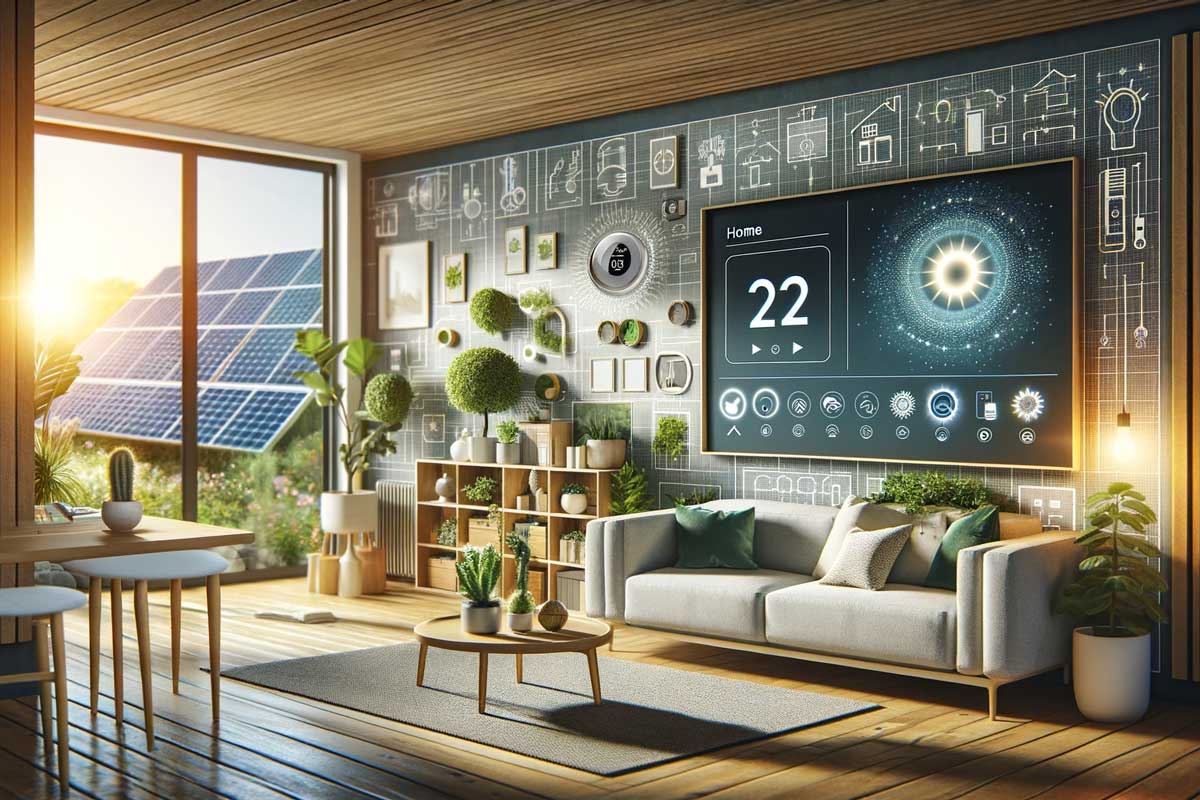
IoT and Solar Panel Efficiency: Revolutionizing Renewable Energy?
Share
The integration of the Internet of Things (IoT) with solar panel technology is paving the way for a new era in renewable energy. With the increasing need for sustainable energy solutions, the combination of IoT and solar panel efficiency promises significant advancements. As tech professionals and enthusiasts, understanding the implications of this integration is crucial for driving innovation and sustainability.

Understanding IoT in Solar Technology
At its core, IoT refers to the interconnection of devices via the internet, allowing them to send and receive data. In the context of solar panels, IoT enables real-time monitoring and management of energy production and consumption. This technology ensures that solar panels are operating at peak efficiency by providing critical data and insights into their performance.
For instance, IoT sensors can detect changes in weather conditions, shading from nearby objects, or dust accumulation on panels. These sensors communicate this data to a central system that can adjust panel orientation or alert maintenance teams to clean the panels, thereby optimizing efficiency. For more insights on how technology enhances sustainability, explore green home technology.
Maximizing Solar Panel Efficiency with IoT
One of the significant benefits of using IoT in solar systems is the ability to maximize panel efficiency. Traditional solar panels operate at a fixed efficiency rate, which can be affected by various factors such as weather, angle of installation, and maintenance. However, with IoT, these limitations can be mitigated. Smart home technology has already started to demonstrate the potential of IoT in optimizing energy use.
For example, IoT devices can analyze historical data to predict and adjust for future weather conditions, ensuring that solar panels are always positioned for maximum sunlight exposure. Moreover, IoT systems can detect inefficiencies in real-time, allowing for immediate corrective actions, such as rerouting power or scheduling maintenance before a significant loss of efficiency occurs.
The Role of Smart Grids
A crucial component of maximizing solar panel efficiency through IoT is the implementation of smart grids. These grids utilize IoT technology to manage electricity flow from solar panels to the broader energy network. By using smart grids, energy distribution becomes more efficient, reducing waste and improving the sustainability of the entire system.
Smart grids also facilitate the integration of solar energy with other renewable sources, creating a more resilient and flexible energy infrastructure. This integration not only enhances energy reliability but also provides tech professionals with new opportunities to innovate solutions that further optimize energy use. For a more detailed exploration of smart grids and their impact, visit sustainable energy storage solutions.
Challenges and Opportunities
While the benefits of integrating IoT with solar panels are substantial, several challenges must be addressed. One of the primary concerns is data security, as the increase in connected devices can lead to potential vulnerabilities. Ensuring robust cybersecurity measures is essential to protect sensitive data and maintain the integrity of the energy grid.
Another challenge is the initial cost of implementing IoT systems within solar infrastructures. However, the long-term savings and efficiency gains can outweigh these upfront expenses. Furthermore, as IoT technology continues to evolve, costs are expected to decrease, making it more accessible for widespread adoption.
Future Prospects
Looking ahead, the combination of IoT and solar panel efficiency holds immense potential for transforming the energy sector. With continuous advancements in technology, the goal of achieving a more sustainable and efficient energy system is within reach. Innovations such as home automation ideas are already showcasing the possibilities of IoT in everyday applications.
As tech professionals and enthusiasts, staying informed and actively participating in the development of these technologies will be crucial in shaping the future of renewable energy. By embracing the integration of IoT with solar panels, we can contribute to a more sustainable world, reduce our carbon footprint, and pave the way for future innovations.
FAQs
How does IoT improve solar panel efficiency?
IoT improves solar panel efficiency by providing real-time data and insights, enabling predictive maintenance, and optimizing energy production through smart grids and automated systems.
What are the main challenges of integrating IoT with solar panels?
Key challenges include ensuring data security, high initial implementation costs, and the need for robust infrastructure to support IoT systems.
What is the role of smart grids in solar energy?
Smart grids play a crucial role in managing electricity flow, integrating renewable energy sources, and enhancing overall energy efficiency and reliability.
